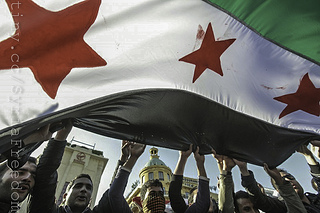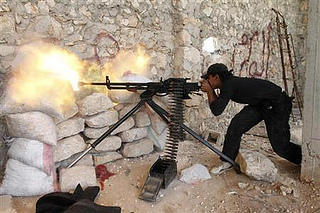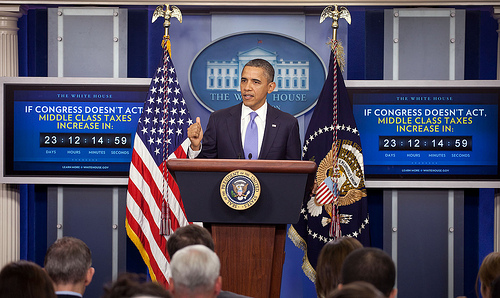Syrian Conflict Recent Recap

But conflicts and wars are all messy things full of hidden details and ideas that don’t just spring up overnight. So in case you missed some things, here’s an abridged guide to catch you up to speed with the Syrian conflict and where the U.S. falls into place with it, for better or for worse.
READ MORE: Experts Weigh In On American Involvement In Syria
To start things simply, Syria is a small country with a population that practically matches Australia (approximately 22.5 million). It occupies an important border of land, sitting beside Turkey, Iraq, Jordan, Israel, and Lebanon, while also having both deserts and fertile areas for growing.
AL-ASSAD AND THE SYRIAN REGIME

Hafez died after 30 years of leadership and was intended to be succeeded by his oldest son, Basel. Basel died in a car accident and his younger son, Bashar had to take his spot.
The whole family is part of a minority of a Shiite Muslim offshoot called Alawite, while the majority of the country is nearly three-quarters Sunni.
Bashar, upon taking office, filled up the majority of positions with his own family, which led to a government controlled mainly by Alawite that fear the rise of the Sunni into dominant power.
THE TRIGGER
While the initial trigger of the civil war can be debated, Dr. Rodger Shanahan, a former peacekeeper in Syria, told News.com that the war started when some children painted anti-regime graffiti. They were sent to detention, where a few of them were killed, and as a result, an outcry began.
THE FSA

And then a lot of people died.
The FSA was unarmed and unsuited for war, so it accepted help from everyone who offered, including jihadists and some people from the Caucasus region (where Dzhokhar Tsarnaev, the accused Boston Bomber, came from).
Now there are Syrian freedom fighters and extreme Islamists essentially fighting to overthrow the Syrian government for their own various gains.
And once again, a lot more people died, many innocent, and many on both sides. People who were both Sunni and Alawite on top of anyone who just stood in the way, fell because of this growing civil war.
FLEE AND BECOME A REFUGEE
With so much to lose and hardly anything left to gain, it’s really not a wonder why so many people began to flee from Syria.
Estimates from the United Nations say that more than 1.5 million refugees have left the small nation and set up refugee wherever they could.
Places like Lebanon, which originally had a population of 4.3 million people, suddenly received a flux of nearly 2 million Palenstinian and Syrian refugees, all taking up residence in the same houses.
According to Father David Smith, a Sydney Anglican priest that visited these camps, “Every Palestinian family took in two, maybe three Syrian families. These included polygamous families which presented a whole new problem. The wives often lived in separate houses in Syria but now they were not just under the same roof but sleeping on the same floor. The domestic violence and rape problems are enormous. I was deeply impressed with camp and people running it."
THE REST OF THE WORLD

Because of no international agreement, there has been minimal international intervention. The United States did what it could and began to provide aid and humanitarian assistance for the FSA.
On the flip side, Iran and Hezbollah (a Lebanon-based area) are in support of al-Assad and the Syrian regime and stood against the rebel army.
After a delay, the United Nations eventually sent out a team of observers meant to instigate a peace plan, but that failed and violence persisted.
CURRENTLY...
Chemical warfare became a big deal--and Syria suddenly jumped back into the spotlight--when an attack of Sarin gas struck and killed hundreds, primarily children and innocent civilians, just last week.
From Neon Tommy:
"Five hundred times deadlier than cyanide, Sarin, also known as GB, is considered one of the deadliest nerve agents, according to the Council on Foreign Relations. The United Nations classifies it as a weapon of mass destruction under its Resolution 687."
The attack is not something to be taken lightly, and definitely not something that can be ignored for many reasons, humanitarian and politically.
The question, however, is what should be done in retaliation. President Obama has been pressured on all sides to take action, but while the United Kingdom voted against military action, French officials are in favor of supporting the U.S. in an attacking strategy.
READ MORE: Obama: 'I Am Ready To Act' In Syria
Obama already promised that no “American boots will be on the ground in Syria,” leading many to suspect that an air strike is being prepared. He then made a statement on Saturday declaring that he believes the U.S. should "hold Assad accountable" and intervene in Syria, but he will still wait for Congress to make the formal declaration to use force.
Read more from CNN.
Read more Neon Tommy coverage of Syria here.
Reach Executive Producer Eric Parra here.



